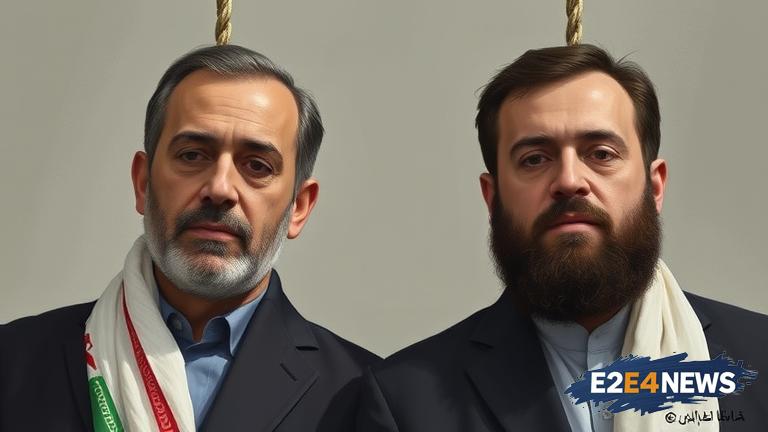Iran has carried out the execution of two members of a banned opposition group, known as the Mujahedeen-e-Khalq (MEK), sparking international outrage and condemnation. The executions were reportedly carried out by hanging, and the victims were identified as Mohammad Ali Hajagi and Mohammad Javad Karami. The MEK, also known as the People’s Mujahedin of Iran, is a left-wing opposition group that has been banned in Iran since the 1980s. The group has been accused of carrying out terrorist attacks against Iranian government targets, and has been designated as a terrorist organization by several countries, including the United States. However, human rights organizations have long criticized Iran’s treatment of MEK members, citing reports of torture, arbitrary detention, and unfair trials. The executions have been widely condemned by governments and human rights organizations around the world, with many calling for Iran to end its use of capital punishment. The United States, the European Union, and the United Nations have all issued statements expressing concern and outrage over the executions. The Iranian government has defended the executions, saying that the two men were guilty of serious crimes and that their executions were carried out in accordance with Iranian law. However, human rights organizations have raised questions about the fairness of the trials and the accuracy of the charges against the two men. The executions are the latest in a long series of human rights abuses carried out by the Iranian government, which has been criticized for its treatment of opposition groups, minorities, and women. The Iranian government has also been accused of suppressing freedom of speech and assembly, and of carrying out arbitrary arrests and detentions. The MEK has been a thorn in the side of the Iranian government for decades, and has been the target of a series of crackdowns and repression. Despite this, the group remains a powerful symbol of opposition to the Iranian government, and its members continue to be active in exile. The executions have sparked widespread outrage among MEK supporters and human rights activists, who have taken to social media to condemn the Iranian government’s actions. The incident has also highlighted the ongoing struggle for human rights and democracy in Iran, where opposition groups and activists continue to face repression and persecution. The international community has been urged to take action to pressure the Iranian government to end its use of capital punishment and to respect the human rights of its citizens. The incident has also raised questions about the role of the international community in promoting human rights and democracy in Iran, and whether more needs to be done to support opposition groups and activists. The Iranian government has faced widespread criticism and condemnation for its human rights record, and the executions are likely to further damage the country’s reputation on the international stage. The incident has also sparked fears of further repression and violence against opposition groups and activists in Iran, and has highlighted the need for increased international pressure on the Iranian government to respect human rights. The executions are a stark reminder of the ongoing human rights crisis in Iran, and the need for the international community to take action to promote democracy and human rights in the country. The MEK has vowed to continue its struggle against the Iranian government, despite the executions, and has called on the international community to support its efforts to promote democracy and human rights in Iran. The incident has also highlighted the need for increased support for human rights organizations and activists in Iran, who continue to face repression and persecution. The international community has been urged to take a stronger stance against the Iranian government’s human rights abuses, and to work towards promoting democracy and human rights in the country.
